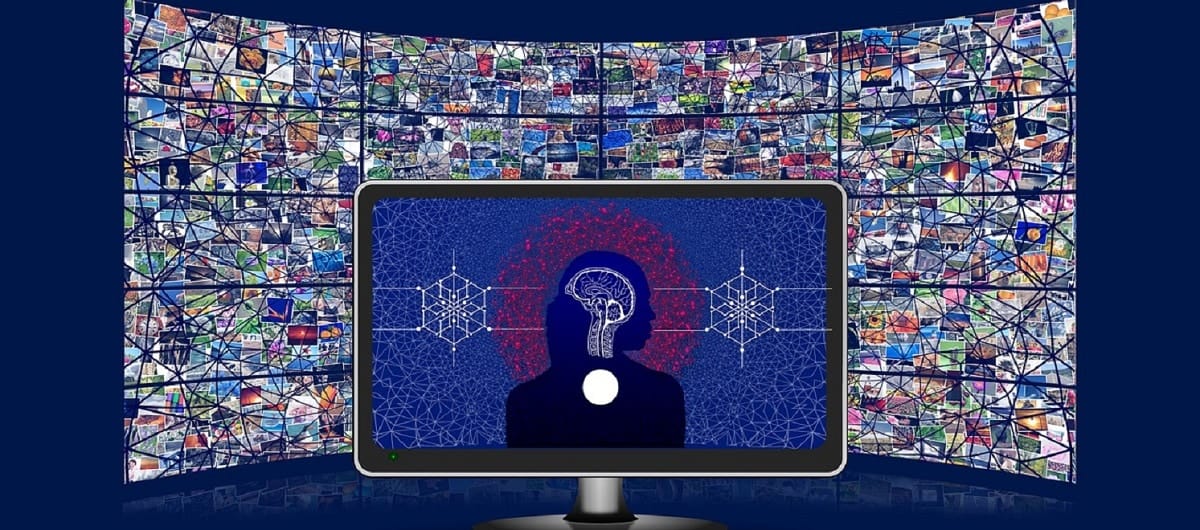Artificial intelligence (AI) is rapidly transforming the world we live in, and its applications can be found in almost every industry today. AI is changing the way we live and work in many fields: healthcare, finance, retail, manufacturing, entertainment, transportation, and art (DreamStudio AI, for example).
In this article, we will explore some of the major fields in which artificial intelligence is being used today.
AI in art
Dreamstudio AI Art Generation is an artificial intelligence (AI) powered platform that allows users to create unique and personalized artworks. DreamStudio AI uses machine learning algorithms to analyze input images and generate new images based on the user’s preferences and style choices.
Dreamstudio AI Art Generation offers a range of customization options, including choosing the style, color scheme, and composition of the generated image. DreamStudio AI’s users can also upload their own images as a starting point for the AI algorithm to work with.
DreamStudio AI is useful for artists, designers, and anyone looking to create unique and customized artwork without the need for advanced technical skills. The generated images can be used for a variety of purposes, including digital art, marketing materials, and even printed products like canvases or posters.
Dreamstudio AI Art Generation is just one example of how AI is transforming the art industry by allowing for the creation of new, personalized artworks that were previously impossible to create without extensive technical training and skill. Interested individuals can create a free Dreamstudio AI account.
AI in Finance
Computers and data scientists have become increasingly important in recent years to businesses for forecasting future market trends. For example, trading relies on accurate future predictions. Machines are very effective in this area because they can quickly analyze large amounts of data. They can also identify patterns from past data and predict what these patterns will be in the future.
Financial organizations use A.I. in the age of ultra-high frequency trading to improve their stock trading performance and to increase their profits. For example, Nomura Securities is Japan’s largest brokerage house. The company is working on analyzing the insights of experienced stock traders using computers. Nomura has been researching for years and is now introducing a brand-new stock trading system.
AI in Gaming
Artificial Intelligence (AI) has become an essential component of the gaming industry in recent years. In fact, one of the industry’s most notable achievements is the incorporation of AI.
DeepMind’s AI-powered AlphaGo software made headlines by defeating Lee Sedol, the world champion in the game of Go. This accomplishment is among the most significant in the AI field. Soon after this victory, DeepMind introduced an enhanced version of AlphaGo: AlphaGo Zero. This new version is much better than its predecessor:
- The original AlphaGo was trained using a huge volume of data and supervision.
- AlphaGo Zero taught itself how to master the game.
Another example of AI in gaming is the First Encounter Assault Recon, commonly known as FEAR, a first-person shooter video game. The opponent, AI’s actions are unpredictable since the game is designed in a way that trains the opponents throughout the game and never repeats the same errors. They improve as the game becomes more challenging. This makes the game highly demanding and encourages players to continuously alter their strategies and never remain in the same position.
AI in Healthcare
Numerous organizations and medical facilities rely on artificial intelligence (AI) to save lives. AI has significantly enhanced patient care globally, as evidenced by several examples. For instance, Cambio Health Care has developed a clinical support system that alerts physicians when a patient is at risk of having a stroke. Coala Life is another firm with a digitalized tool that can detect cardiac disease. Additionally, Aifloo is currently working on a system that will monitor nursing home and home care patients’ well-being. AI is an effective means of improving healthcare since it obviates the need to invent new drugs. Instead, it enables the optimal use of existing medications to save lives.
AI in Social Media
Since social media became our identity, we have generated an incalculable amount of data via chats, tweets, and posts. So, AI and Machine Learning can be found wherever there’s a lot of data.
Face verification is used in social media platforms such as Facebook. Machine learning and deep-learning concepts are used to detect facial characteristics and tag your friends. Deep Learning uses deep neural networks to extract all the details from an image. A machine learning algorithm is used to create your feed according to your interests.
Twitter’s AI is another example, as it is used to identify terroristic language and hate speech in tweets. In addition, it uses Machine Learning, Deep Learning, and Natural Language Processing to filter out offensive material.
AI in Chatbots
Virtual assistants are a common technology these days. Virtual assistants are in almost every home. They control the appliances. Siri and Cortana are two examples of virtual assistants that have gained popularity due to their great user experience.
Amazon’s Echo shows how Artificial Intelligence (AI) can be used to translate human language into desired actions. This device uses NLP and speech recognition to carry out various tasks at your command. It does more than play your favorite songs. You can use it to order food, make phone calls, control your home devices, and more.
Google Duplex is another example of a virtual assistant that has amazed millions. It can not only answer your calls and make appointments but also give you a personal touch.
The device processes human language using Natural Language Processing and Machine Learning algorithms. It can manage your schedule, control your smart home, make a reservation, etc.
AI in Agriculture
Artificial Intelligence (AI) is increasingly being employed in agriculture to increase efficiency and productivity. Here are some applications of AI:
- Crop Monitoring and Management: AI-powered sensors and drones are being deployed to monitor crops for issues like nutrient deficiencies, diseases and pests. By analyzing this data from these sensors, farmers can make more informed decisions on how best to manage their fields; including changing irrigation practices, fertilizer application rates or pesticide applications as needed.
- Machine learning algorithms can analyze historical weather, soil moisture, and other data sources to predict crop yields and assist farmers with harvesting planning and optimizing operations. This information allows them to better plan harvests while optimizing operations. For instance, PEAT, an agricultural technology start-up based in Berlin, has developed a mobile application called Plantix that uses image recognition to identify potential defects and nutrient deficiencies in the soil. The app can detect possible defects by analyzing images captured by the user’s smartphone camera. In addition, the application offers soil restoration techniques, tips, and other potential solutions to users.
- AI can be utilized for livestock management by way of monitoring their health and welfare. Sensors may track an animal’s movement, temperature and behavior to identify signs of illness or distress in an effort to predict outcomes of its care.
- Precision agriculture uses data and technology to optimize farming practices on a per-field basis. Artificial intelligence can be leveraged to use data collected from sensors, drones, or other sources and compile it into an accurate map of a field with recommendations on planting, irrigation and harvesting practices that maximize yields and revenue. For example, Blue River Technology has developed a robot named See & Spray that employs computer vision technology, such as object detection, to monitor and accurately spray weedicide on cotton plants. This precision spraying technique can help prevent herbicide resistance.
- Artificial intelligence can be leveraged to optimize agricultural product supply chains. AI algorithms can analyze weather and demand data to predict when crops will be ready for harvesting, then help farmers plan transport and processing accordingly.
AI in Writing
Artificial Intelligence (AI) has many real-life applications in writing. Here are just a few:
- AI-powered software can be used to automatically generate content for websites, blogs, and social media. For example, the AI can use collected data to produce articles, product descriptions, and other types of posts based on this.
- Language Translation: AI-powered translation tools can be utilized to translate written material between different languages, providing businesses that operate globally with clients located across several nations a useful means to connect.
- Grammar Checking: AI-powered grammar checkers can be used to analyze written content for grammar and spelling errors, helping writers produce error-free writing while improving overall writing quality. These tools can assist writers in producing error-free content while increasing overall writing quality.
- Tailored Content: Artificial intelligence can be leveraged to craft tailored content specifically tailored for readers, such as news feeds, product recommendations, and tailored marketing messages.
- Speech-to-Text transcription: AI-powered software can help transform spoken content into written form for journalists, podcasters, and other creators who require written transcription of audio or video material. This technology may prove especially helpful when translating spoken to written format for reporting purposes or media reports.
- Sentiment Analysis: Artificial intelligence-powered sentiment analysis tools allow businesses to analyze written content for positive or negative sentiment, making this technology an essential asset in monitoring social media mentions and customer reviews.
AI in Transportation
Artificial Intelligence (AI) has numerous practical uses in the transportation industry. Here are a few examples:
- Autonomous Vehicles: AI-powered self-driving cars, trucks, and buses are being designed to revolutionize how we transport goods and people. These autonomous vehicles use machine learning algorithms to perceive their environment and make driving decisions autonomously.
- Traffic Management: AI can be leveraged to optimize traffic flow, decrease congestion and enhance road safety. Intelligent traffic management systems utilize real-time data to adjust signals and regulate vehicle flows accordingly.
- Predictive Maintenance: AI-powered predictive maintenance systems can monitor vehicle health and predict when repairs or maintenance is needed, helping transportation companies reduce downtime and enhance efficiency. This technology may help transport companies reduce downtime while improving efficiency.
- Route Optimization: Artificial intelligence can help shipping and logistics companies optimize delivery routes through AI. These AI-powered route optimization systems can reduce fuel usage while improving delivery times by studying traffic patterns, road conditions, and weather data.
- Passenger Experience: AI technology can be leveraged to improve passenger experiences when taking public transit, including real-time information about delays, cancellations, and travel-related updates to passengers. AI-powered systems could also provide real-time travel updates such as delays/cancellations information in real time to passengers.
- Air Traffic Control: AI can be utilized to improve air traffic control by analyzing flight data, anticipating delays, and optimizing routes – this technology allows airlines to reduce costs and increase customer satisfaction.
AI has a lot of applications, and the ones above are only some of them. AI can even help with SEO. However, to properly succeed SEO-wise, you need a talented team to build the best links for your blog or website. Outreach Bee can handle all aspects of the SEO outreach process, from finding quality blogs to writing a great piece and creating the link manually. So, contact us and get things started.



What is a DNS, and Why Do You Need One?
In Need of a Good VPN? Here is a List Based on Reliability, Speed, and Security